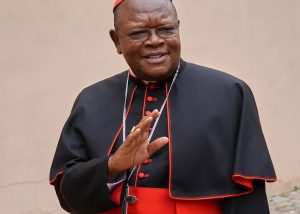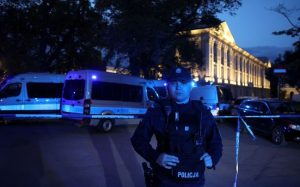Mozambique opposition leader Venancio Mondlane returns from exile
3 min readVenancio Mondlane, the leader of Mozambique’s main opposition party, returned to the country on Thursday after months of exile, amid escalating tensions between his supporters and security forces. As Mondlane arrived at Mavalane International Airport in Maputo, security forces clashed with hundreds of his supporters who had gathered to welcome him home. Tear gas was fired at the crowd, and a helicopter hovered overhead, further escalating the tense situation.
Mondlane, who had fled Mozambique in October following a disputed election, arrived back in the capital after a period of exile in neighboring countries. He had left the country under duress, fearing for his life after two senior members of his opposition party were assassinated in a late-night shooting just days after the election. The two party members were killed by unknown gunmen, which Mondlane and his supporters believe was politically motivated.
Security forces were on high alert ahead of Mondlane’s return, blocking roads leading to the airport and anticipating large crowds of opposition supporters. The violence that followed his return underscored the growing instability in the country, which has been rocked by protests and violent clashes between opposition groups and the government. Thousands of Mondlane’s supporters had been expected to rally in Maputo, and the presence of tear gas and helicopters indicated the authorities’ determination to prevent unrest.
Since the disputed October 9 election, Mozambique has seen widespread protests and violence. Mondlane called for demonstrations against the ruling Frelimo party, accusing them of election fraud and manipulation. The protests have turned violent, with security forces responding harshly, resulting in the deaths of over 100 people. These fatalities have raised concerns about the increasing brutality of the government’s response to opposition protests. Mondlane and other opposition leaders have also claimed that the election results were rigged, with international observers reporting multiple irregularities and the alteration of vote tallies.
The Frelimo party, which has been in power since Mozambique gained independence from Portugal in 1975, has faced long-standing accusations of election fraud and suppression of opposition. In the aftermath of the election, which was marred by controversy, the Constitutional Council upheld Frelimo’s victory, declaring Daniel Chapo, the party’s candidate, as the president-elect. Chapo is expected to be inaugurated next week to replace outgoing President Filipe Nyusi, who is finishing his second term.
Mondlane’s return to Mozambique marks a significant moment in the ongoing political crisis in the country. His exile and the subsequent wave of violence and protests highlight the deep divisions within the nation. Frelimo has maintained control over the political landscape for decades, but the latest protests represent one of the biggest challenges to their rule. The unrest has sparked concerns that Mozambique’s democratic institutions are under threat, as the ruling party’s dominance continues to be challenged by the opposition.
Despite the protests and accusations of electoral fraud, Frelimo’s continued grip on power remains unshaken. The government has used its control over security forces to suppress dissent, and the violence in the aftermath of the election has cast a shadow over the country’s commitment to democratic principles. As Chapo prepares for his inauguration, it is clear that the political instability and tensions in Mozambique are far from resolved.
Mondlane’s return is likely to intensify the ongoing political struggle between the opposition and the government. His supporters view him as a symbol of resistance against the Frelimo regime, and his presence is seen as a challenge to the legitimacy of the current leadership. However, the authorities have shown little willingness to compromise, and the continued crackdown on opposition protests suggests that the political climate in Mozambique will remain volatile in the coming months.
As the situation in Mozambique continues to unfold, the international community will be watching closely. The country’s struggle for democracy and political stability has implications not only for Mozambique’s future but also for the broader southern African region, where similar challenges to long-standing political regimes have emerged in recent years. The coming weeks and months will likely determine whether the opposition can effectively challenge the ruling party’s power or whether Mozambique will continue down the path of political unrest and division.






